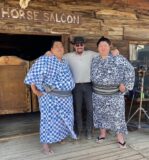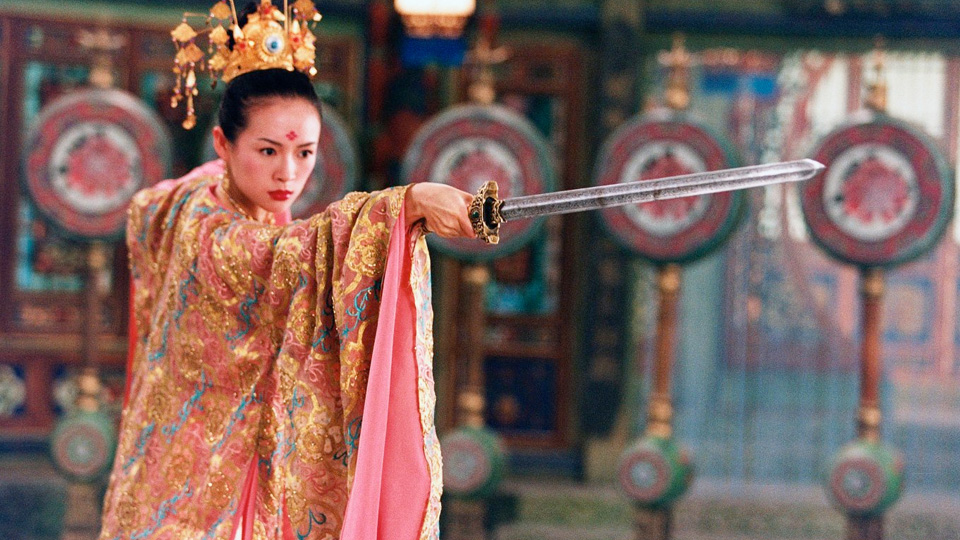One of the most colorful and stylish martial arts movies of the end-of-the-year season is Zhang Yimou’s House of Flying Daggers, his wire-fu followup to Hero. This is a movie “animated” the most literally, because it is high-energy production just a pause for the occasional exhibition – a film that makes viewers drool. It is a thin, when it comes to plot and character development, but Zhang will find many ways to compensate for these deficiencies.
If you think Hero is a sumptuous martial arts movie, prepare to be blown away by the House of Flying Daggers. From the stylistic point of view, any film in 2004, his equal. The martial arts sequences are more exciting and more complete than in Hero, and although this film does rely heavily on color schemes like its predecessor, it contains some scenes of incredible beauty. Consider, for example, a battle that began in the fall with all the trees with their bright colors. It starts to snow, and soon everything is covered in white. When people talk about movie magic, they refer to moments like this.
The bare bones narrative opens in the ninth century. A rebel group fighting to bring down China’s Tang Dynasty goes by the name of “House of Flying Daggers” and acts in a Robin Hood-like manner, stealing from the rich and giving to the poor. Two guard captains, Jin (Takeshi Kaneshiro) and Leo (Andy Lau), are sent on a mission to find the hidden rebel base. To do this, Jin courts the affections of Mei (Zhang Ziyi), a blind call-girl who may actually be a key member of the Flying Daggers group. After breaking Mei out of prison, Jin goes on the run with her, and discovers that his growing feelings for her could interfere with his mission.
The House of Flying Daggers has six outstanding battle sequences, which are all surrounded by an aura epic. The first battle occurs Show House, where Mei duels with an expert swordsman. Subsequently, the Echo Game. Later, there are conflicts in, areas of forests and trees. Then there is the tragic, the final battle. Perhaps the most important thing is the conflict, which is inexplicably missing. The martial arts movie takes viewers to believe that there is a titanic clash between guards and rebellious, but in spite of the accumulation is in place, the fight will never happen. This is a strange omission causes House of Flying Daggers disappointing final note.
Actors and stuntmen do their job well. The most impressive is Zhang Ziyi, who has grown considerably as an actor in recent years. It is more than just a pretty face, and it captures the arrogance and vulnerability Mei perfect. It can be very sexy and seductive one moment (like when she bathes) and deadly the next. Her male counterpart, Takeshi Kaneshiro, is just as effective, and the critical element in any romance – I refer to the “chemistry” – are present.
House of Flying Daggers has a little something for everyone, and only the disappointing end prevents it from being a memorable film on par with Crouching Tiger, Hidden Dragon. Combined with Hero, this gives Zhang an amazing one-two stylistic action punch.







